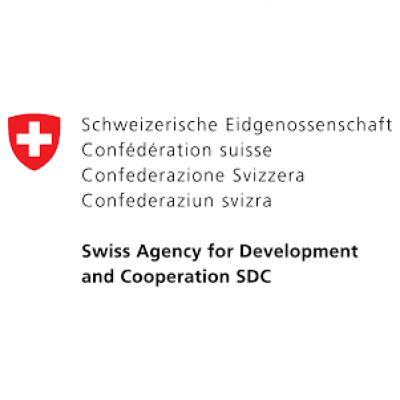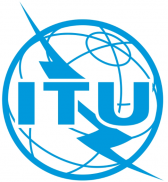
Strengthening Critical Infrastructure against Natural Hazards: Development of Operational Manual for NCMC and capacity building of CMC staff by conducting trainings on CMC exploitation, communication system work in crises, mobile communication vehicle work and Coordination Center exploitation
Details
Associated tenders • 1
Status
Date
Description
Development of Operational Manual for NCMC and capacity building of CMC staff
Request for Expression of Interest
(Consulting Services – Firms Selection)
Country: Republic of Tajikistan
Project: Strengthening Critical Infrastructure against Natural Hazards Project
Credit No.: 6089-TJ, Grant No.: D205-TJ
Assignment Title: Development of Operational Manual for NCMC and capacity building of CMC staff by conducting trainings on CMC exploitation, communication system work in crises, mobile communication vehicle work and Coordination Center exploitation
Reference No. (as per Procurement Plan): SCINHP-CS-CQS-01
The Government of the Republic of Tajikistan has received an advance payment from the International Development Association (World Bank) for the preparation of the project "Strengthening Critical Infrastructure against Natural Hazards." The purpose of project preparation is to create the foundation for the long-term program of the Government of disaster risk management in Tajikistan. As a first step, the project will target the region of Gorno-Badakhshan Autonomous Oblast (GBAO), which has suffered as a result of floods and landslides in July 2015, and taking into account the vulnerability of the region to natural disasters to fund reconstruction of infrastructure in order to reduce disaster risk and to avoid the potential damage in the long run.
The State Institution “Project Implementation Unit for Access to Green and Rural Development Finance” under the Ministry of Finance of the Republic of Tajikistan (PIU MOF) in the framework of “Strengthening Critical Infrastructure against Natural Hazards Project" invites Consultants (companies) to express interest for development of Operational Manual for NCMC and capacity building of CMC staff by conducting trainings on CMC exploitation, communication system work in crises, mobile communication vehicle work and Coordination Center exploitation.
Objectives
Consultant Company on development of Operational Manual for "NCMC CoESCD RT" will perform the development of the Operational Manual, training and exercise.
Scope of work
1. Development of the Operational Manual.
- To study, describe, draw up or finalize the structure of the NCMC CoESCD RT, present a structural diagram;
- To study, describe, draw up or finalize the plan of interaction of the structural units of the CoESCD of the Republic of Tajikistan with the Central Office of the CoESCD of the RT (hereinafter referred to as CO) with other state authorities in the mode:
- Everyday activities - in the absence of a threat of emergencies;
- Increased readiness - in case of a threat of emergency;
- Emergency - in the case of emergencies and elimination.
- To study, describe, develop or finalize job descriptions and responsibilities containing a specific list of job responsibilities of employees of the NCMC CoESCD RT;
- Development of regulations (instructions) for the preparation of decision-making stages, starting with identifying problems, collecting initial information and ending with the formation of draft decisions for their adoption and follow-up.
- Development or revision of instructions for the NCMC work regulations on the organization of notification and information in the event of (threat) emergencies (incidents)
- Development or revision of instructions of the regulation ensuring the maintenance in the prescribed manner of constant interaction and exchange of operational information with the management bodies of the regional territorial subsystem of the Committee for Emergency Situations of the Republic of Tajikistan.
- Development or revision of instructions of the regulations, performing the reference and analytical, informational, methodological and research work to improve the methods of maintaining and updating the relevant automated databases, methods of providing information from them, the introduction of innovative information technologies in the field of civil defense, in emergency situations and terrorist actions.
- Development or revision of regulations, instructions for organizing interactions between the NCMC CoESCD and the Ministry of Internal Affairs, the ambulance service, the fire safety service of the subjects of the Republic of Tajikistan and local authorities;
- Development or revision of regulations, instructions, organization of electronic communication, NCMC CoESCD RT and the fire safety service of the subjects of the Republic of Tajikistan, governing bodies of functional and territorial subsystems of CoESCD during emergency response;
- To prepare, develop or revise the procedures, regulations and instructions for:
- Conducting an “Operational Conference” in the building of the NCMC CoESCD RT:
- Conducting “Video conferences” in the building of the NCMC CoESCD RT;
- Conducting "Operational meeting" in the building of NCMC CoESCD RT;
- Holding conferences in the building of the NCMC with the external special services involved in emergency response;
- Conducting meetings with the managerial bodies of the state authorities in the building of the NCMC CoESCD RT;
- Development or revision of regulations of the organization's instructions to strengthen the operational duty shifts of the department’s duty shifts in the NCMC CoESCD RT.
- Development or revision of regulations, instructions, planning for the Operational Duty Service in the NCMC system when carrying out operational duty by operational duty shifts (personnel of the daily management body of the NCMC, performing tasks of operational duty shift at the control point around-the-clock mode).
- Development or revision of regulations, instructions for NCMC on:
- communication organization diagram;
- calculation of the forces and means involved;
- the scheme of calls;
- notification scheme in the emergency zone;
- telephone directories for work in the course of emergency response.
- Development or revision of regulations, instructions for the Call Center “System 112” to ensure:
- reception, registration, documentation of calls, forwarding of calls received by the number “112”;
- handling bulk calls about an already registered incident;
- receiving, registering, documenting calls;
- obtaining data about the subscriber and his location:
- automatic possibility of dialing to the caller in case of a sudden interruption of the connection (for example, if the caller did not wait for the operator's answer, being in the waiting queue);
- providing advisory support to the population when applying for life safety issues;
- the need to connect a psychologist or translator to a conversation with a subscriber.
- reception, processing and accounting of calls (messages about incidents) coming to a single number “112”;
- decision making support;
- monitoring the performance of the system-112;
- formation of the required reports;
- storage and updating of databases and the ability to obtain information about the incident from the archive in operational mode;
- Development or revision of regulations, instructions for data exchange between the main analytical system and the Call Center “System 112”.
- Development or revision of regulations, instructions for “System 112” when integrating with:
- Node for providing calls to emergency services
- Distributed information and computing platform
- Ambulance service
- Police Service
- Fire safety services
- Information and communication subsystem
- Subsystem of advisory service
- Information security subsystem.
- To develop or supplement regulations, instructions for document flow in case of emergencies. The list of documents submitted by the operational duty shift of the NCMC CoESCD RT by subjects to the regional NCMC, in the event of an emergency. When and at what time you need to submit documents;
- To develop or supplement the regulations, instructions guaranteeing the receipt and transmission of orders (signals) for advance preparation for the transfer and transfer to work in wartime conditions, control signals and alerts;
- To develop or supplement the regulations, instructions of the NCMC CoESCD RT for the current forecasting of the development of possible consequences of fires, man-made accidents and disasters, natural disasters;
- To develop or supplement the regulations, instructions of NCMC CoESCD RT, providing information for the activities of the relevant governing body CoESCD RT in various modes of its operation;
- To develop regulations for the mobile control points (mobile NCMC)
- The use of a mobile control center in the emergency zone;
- Duties of officials of the mobile control center;
- The order of organization of communication and ACS with the CO NCMC RT;
- The procedure and principles of organizing communication with the CO NCMC CoESCD RT;
- The order of planning communication with the CO NCMC RT;
- The basics of organizing communication with the CO NCMC CoESCD RT;
- The procedure for exchanging information with CO NCMC CoESCD RT.
Theoretical training should ensure successful practical exercises using all technologies and processes being introduced. In turn, practical exercises increase the level of training and maintaining a high degree of readiness of the leadership, command and control bodies, forces and means to solve problems in the prevention and elimination of emergencies.
One of the main conditions for the preparation and conduct of theoretical training is the development of interaction between various units at the level of information exchange, a comprehensive consideration of the nature of possible emergencies from the practical experience of their prevention and elimination in the selected region. In the process of theoretical training, a complex and instructive environment should be created, as close as possible to the existing or most likely emergency situations that arise in the Republic of Tajikistan.
When studying the methods of work of trainees in the course of decision-making and planning of actions, the leadership of the exercise and mediators need to pay special attention to the organization of this work, the correct understanding of the task set by the senior chief, the ability to assess the situation and make informed decisions, timely, clear and specific assignment of tasks to subordinate bodies management and forces, coherence and consistency in the work between the links of the territorial and functional subsystems of the CoESCD RT.
In the course of studying the worked-out documents, their reality is checked and assessed, their compliance with regulatory documents and the situation, visibility and culture of execution. Based on the results of the analysis, the training, to develop measures to improve the methods of managing the forces of the NCMC CoESCD RT using new ICT capabilities. Reveal the insufficiency or redundancy of the implemented equipment, technology and management decisions.
The problems identified and their subsequent resolution should help to provide more precise instructions in the Operational Manual.
To identify possible weaknesses, problems in the management and collaboration of the NCMC CoESCD RT unit.
2. Training:
- The main objectives of the theoretical part of the training are:
- Conduct theoretical classes on new interaction processes between the department of the CoESCD RT and the NCMC CoESCD RT and mobile command communication systems described in the Operational Manual;
- To work out the theoretical skills of using the new functional capabilities of the NCMC CoESCD RT by the management team and other participants in the elimination of emergency situations;
- Theoretical development, planning of actions of forces and means, taking into account the new ICT in the elimination of emergency situations;
- Achieving consistency in the work of the command and control bodies of the CoESCD RT and forces of various levels in solving problems of prevention and elimination of emergency situations.
3. Exercise:
- The main objectives of the practical part of the exercise are:
Work out an algorithm for the interaction of all parts of the CoESCD RT and the controls with the NCMC CoESCD RT based on the new procedures described in the Operational Manual.
Qualification requirements.
A consultant company must have a qualified team of employees with competence in:
- Military Units Management in the field of civil defense and protection of population, territory in the emergencies and military formation rescue;
- Experience in preparing Operational manuals, job descriptions, understanding the CMC working processes, understanding the exchange process, keeping and processing information;
- Understanding the principles of organization, interaction with the management bodies of functional and territorial subsystems of CoESCD RT with the bodies of state authority;
- Understanding the supplement principles and clarifying the formalized and the informational-reference documents;
- Good understanding of digital system of processing and keeping data.
- Good understanding of radio communication systems.
- Good understanding of the operating principles of emergency warning systems.
- Good understanding of the operating principles of information and communication systems in the area of centres for crisis management in special rescue services or emergency services.
- The language of the training is Russian or Tajik.
The selection of consultants (companies) will be carried out by the method of Consultant’s Qualification Selection (CQS) regarding to the procedures of the World Bank in accordance with the "Guidelines: Selection and Employment of Consultants by World Bank Borrowers under IBRD Loans and loans and grants from IDA", January 2011, revised in July 2014.
Interested companies must submit information about their qualification in the proposed field in Russian and English to the address below or send by e-mail from 8:00 to 17:00 from Monday to Friday. The deadline for submission of proposals is September 01, 2021 17:00 (local time).
State Institution “Project Implementation Unit for Access to Green and Rural Development Finance” under the Ministry of Finance of the Republic of Tajikistan
3 Academician Rajabovs Anevue, Dushanbe, Tajikistan, 734025
Tel: (+992 37) 221-02-34
Fax: (+992-37) 221-67-43
E-mail: p.negmatov@greenfinance.tj
Website: www.greenfinance.tj






